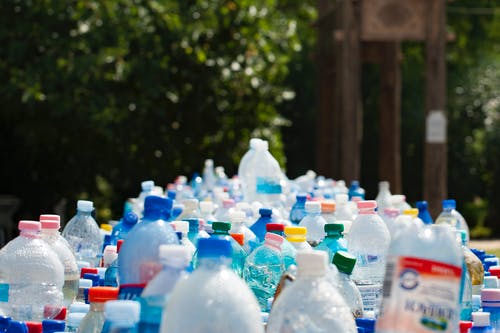Written by Samantha Barrionuevo, MPH Candidate at Slippery Rock University

Plastics used in everyday activities such as straws, coffee cups and shopping bags that are meant to be used once and tossed are considered “single-use” plastics. They are a convenient, mindless part of our everyday lives, but unfortunately are creating a negative impact on the environment, marine life, and our own health.
So, what’s the problem?
Recycling plastic materials is a good way to reduce the carbon footprint. However, over 90% of plastics are not being recycled and instead being thrown away and dumped into landfills or littered into the environment. Small, single-use plastics such as straws or cutlery are usually not able to be recycled because of their size. Since plastic is non-biodegradable, it takes hundreds of years to break down into the environment. When it does, it breaks into tiny pieces called microplastics.
Do your part
Ditch the plastic grocery bags and carry a trendy reusable bag instead. Give up bottled water and invest in a re-usable bottle and filter. Stainless steel or recycled aluminum water bottles will last years, save money, and reduce waste. Prioritize durability over convenience and use re-usable storage containers. Opt for fresh foods over pre-packaged foods (these also tend to be more nutrient-dense). Finally, if you have plastic bags, do not throw them in your curbside recycling bin. Instead, find a plastic bag drop-off location here.






